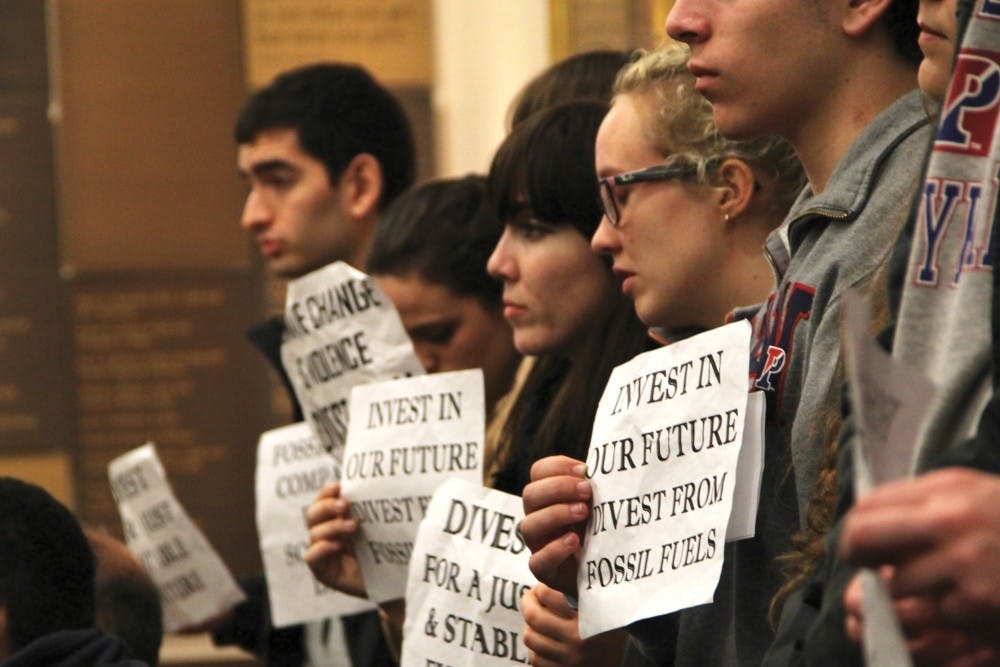Fossil Free Penn, the group historically committed to Penn's complete divestment from fossil fuel companies, has decided to narrow its focus for the semester and advocate for University divestment from the two most harmful fossil fuels: coal and tar sands.
Last semester’s highly publicized protests, rallies, and outreach efforts ultimately ended with no policy changes from Penn. Fossil Free Penn has returned this semester with new goals and strategies: targeting individual Penn Board of Trustees members and individual fossil fuels.
The group plans to consolidate its divestment efforts by targeting coal and tar sands. FFP Campaign Co-Coordinator and College junior Zach Rissman said FFP was following the example set by other universities — Stanford University announced it would divest from coal producers in 2014 and Columbia University did the same in March 2017.
"Our main goal is for Penn to divest from all fossil fuel companies," Rissman said. "But we believe that this semester, it will be really important for Penn to divest from coal and tar sands because they are the most dangerous fossil fuels."
The group will also engage in “more targeted action” against trustees, Student Outreach Coordinator and College sophomore Lucy Corlett said. Corlett said there are plans to approach trustees on an individual basis rather than only facing them during meetings, which the group have recently protested.
"We're really trying to build a rapport with the Board of Trustees and use the student support gained last semester to help take student voices directly to the trustees,” Rissman said.
Past attempts by the group to reach out individually to trustees resulted in a September 2017 emailed statement from Board of Trustees Chair David Cohen.
"Your efforts moving forward will be best spent discussing additional steps short of divestment to make Penn a continued global leader on the critical issue of climate change and environmental sustainability," Cohen wrote in the email.
RELATED:
Fossil Free Penn wraps up a semester of activism with no policy changes but plenty of hope
Sixty students marched into the Trustees meeting on Friday calling for fossil fuel divestment
College sophomore Jacob Hershman, another student outreach coordinator of FFP, said that the group will also continue to protest at Board of Trustees meetings this year — the first of which will take place on March 1.
Until then, FFP will continue to direct energy toward growing last semester's collaboration with alumni to create an incentive fund that will be donated to Penn if the University divests.
“The language that Penn speaks more than any other is money," Rissman said. "If we really want to communicate with Penn we might as well start speaking the same language.”
Last semester, FFP organized Divestfest on College Green and held silent protests at two Board of Trustees meetings. The group also established a desire to increase student body involvement and work within University policies.
The administration has been pushing back from complete divestment since FFP’s inception in 2014. In September 2016, the Ad Hoc Advisory Committee on Divestment decided against divestment, a decision that prompted reactions including two sit-ins in March 2017 and November 2016 and a demonstration at a University Council Open Forum in February 2017.



